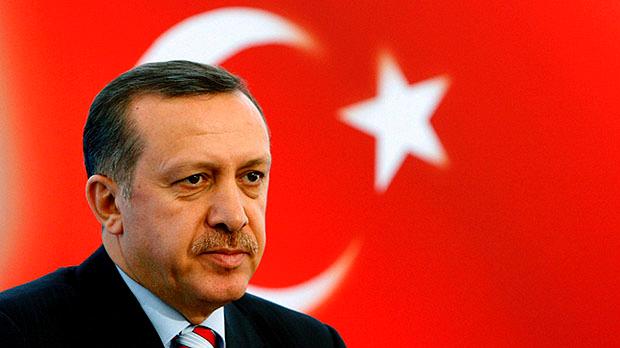Erdogan Vows To Continue Syria Operations Till The End As Death Toll Rises
NEW DELHI: Turkish President Recep Tayyip Erdogan has vowed that Turkey will continue its fight against the Islamic State and Kurdish militias till the very end, as the country’s cross border operation, which started about a week ago, leaves dozens dead.
Speaking in Gaziantep in southeast Turkey where 54 people were killed in a suicide bombing, prompting the Turkish government to dramatically escalate its role in Syria, Erdogan said, “We can not tolerate any terror organisation within or close to our borders… That's why we are in [Syria's] Jarablus. And, if necessary, we will not flinch from taking on similar responsibilities in other areas."
The Turkish President told a supportive crowd that "operations against terrorist organisations will continue until the end.” We will make any kind of contribution to the work to clear Daesh from Syria," Erdogan said, adding that “for the issue of the PYD (Democratic Union Party) terror group in Syria, we have just the same determination.”
Erdogan’s statement comes as Turkey intensified its "Euphrates Shield" military offensive in northern Syria on Sunday, with Turkish airstrikes pounding pro-Kurdish areas near the town of Jarablus. Turkey backed Syrian fighters had taken the town from the Islamic State last week.
According to the UK based Syrian Observatory for Human Rights, at least 40 civilians were killed in separate Turkish strikes near the village of al-Amarneh and in Jeb al-Kussa, which are just outside Jarablus. The group added that at least four Kurdish fighters had been killed and 15 wounded in the bombardments.
Turkey, on its part, denied the civilian toll, saying its operation had killed 25 “terrorists.” State-run Anadolu news agency reported that in a statement, the Turkish armed forces clarified that the air campaign was carried out against "terrorist groups" which had attacked Turkish soldiers supporting a Free Syrian Army (FSA) operation in Jarablus.
Turkey’s predicament is evinced by the fact that its fighting both the Islamic State and Kurdish militias, who in turn, are at war with each other. In fact, Turkey’s main ally in the war, the United States, outrightly supports Kurdish forces in the fight against IS in Syria and parts of Iraq.
This is because Turkey views the YPG as an extension of the Kurdistan Workers Party (PKK), and has stepped up its offensive against the Kurdish militias after a two year ceasefire between Turkey and the PKK broke down last summer, following a bombing that killed 32 young Kurdish and left-wing activists in the south-eastern city of Suruc in July.
Ankara in turn suspects the Islamic State’s involvement in the attack, as those targeted were traveling across the border to help rebuild the battered city of Kobane. The PKK accused Turkey of wanting IS fighters to succeed in an attempt to put a stop to Kurdish territorial gains in Syria and Iraq, and responded with a wave of counter attacks that continue today.





